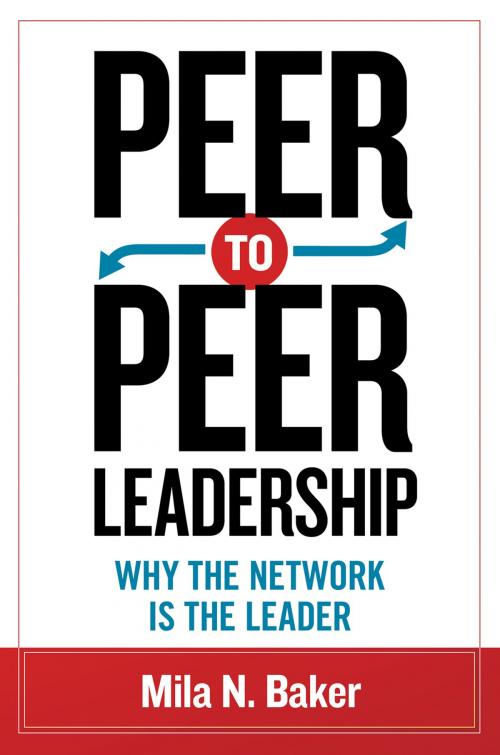Peer-to-Peer Leadership
Why the Network Is the Leader
Business & Finance, Management & Leadership, Leadership, Management| Author: | Mila N. Baker | ISBN: | 9781609947491 |
| Publisher: | Berrett-Koehler Publishers | Publication: | January 6, 2014 |
| Imprint: | Berrett-Koehler Publishers | Language: | English |
| Author: | Mila N. Baker |
| ISBN: | 9781609947491 |
| Publisher: | Berrett-Koehler Publishers |
| Publication: | January 6, 2014 |
| Imprint: | Berrett-Koehler Publishers |
| Language: | English |
Our leadership models are stuck in an Industrial Age, top-down mentality. But in our complex, data-drenched, 24/7 world, there is simply too much information coming from too many different directions too quickly for any one leader or group to stay on top of it. Hierarchy is breaking down everywhere—why should leadership be any different? Inspired by the peer-to-peer model of computing used in social networking and crowdsource technologies, Mila Baker shows a new way to lead. Organizations, she says, must become networks of "equipotent" nodes of power—peer leaders. The job of the leader is now to set the overall goals and direction and optimize the health of that network, not tell it what to do. In these organizations, leadership roles shift rapidly to fit the needs of any given situation. Information flows freely so those who need it can find it easily and act on it immediately. Feedback becomes an organic part of the workflow, enabling rapid course corrections. Baker shows how companies like Gore and Herman Miller have achieved long-term success practicing these principles and provides a structure that any organization can adapt to build flexibility, resiliency, and accountability.
Our leadership models are stuck in an Industrial Age, top-down mentality. But in our complex, data-drenched, 24/7 world, there is simply too much information coming from too many different directions too quickly for any one leader or group to stay on top of it. Hierarchy is breaking down everywhere—why should leadership be any different? Inspired by the peer-to-peer model of computing used in social networking and crowdsource technologies, Mila Baker shows a new way to lead. Organizations, she says, must become networks of "equipotent" nodes of power—peer leaders. The job of the leader is now to set the overall goals and direction and optimize the health of that network, not tell it what to do. In these organizations, leadership roles shift rapidly to fit the needs of any given situation. Information flows freely so those who need it can find it easily and act on it immediately. Feedback becomes an organic part of the workflow, enabling rapid course corrections. Baker shows how companies like Gore and Herman Miller have achieved long-term success practicing these principles and provides a structure that any organization can adapt to build flexibility, resiliency, and accountability.















